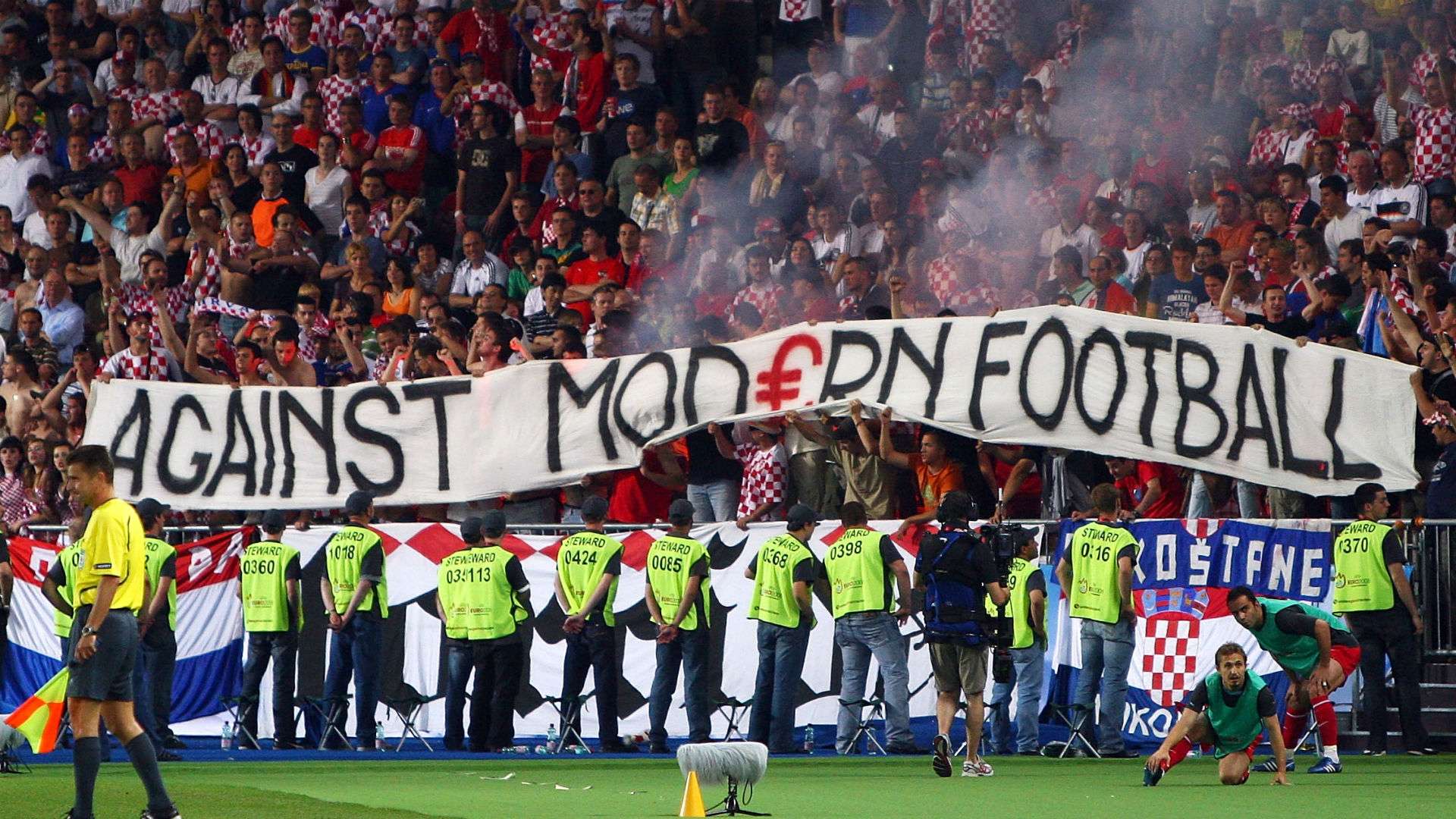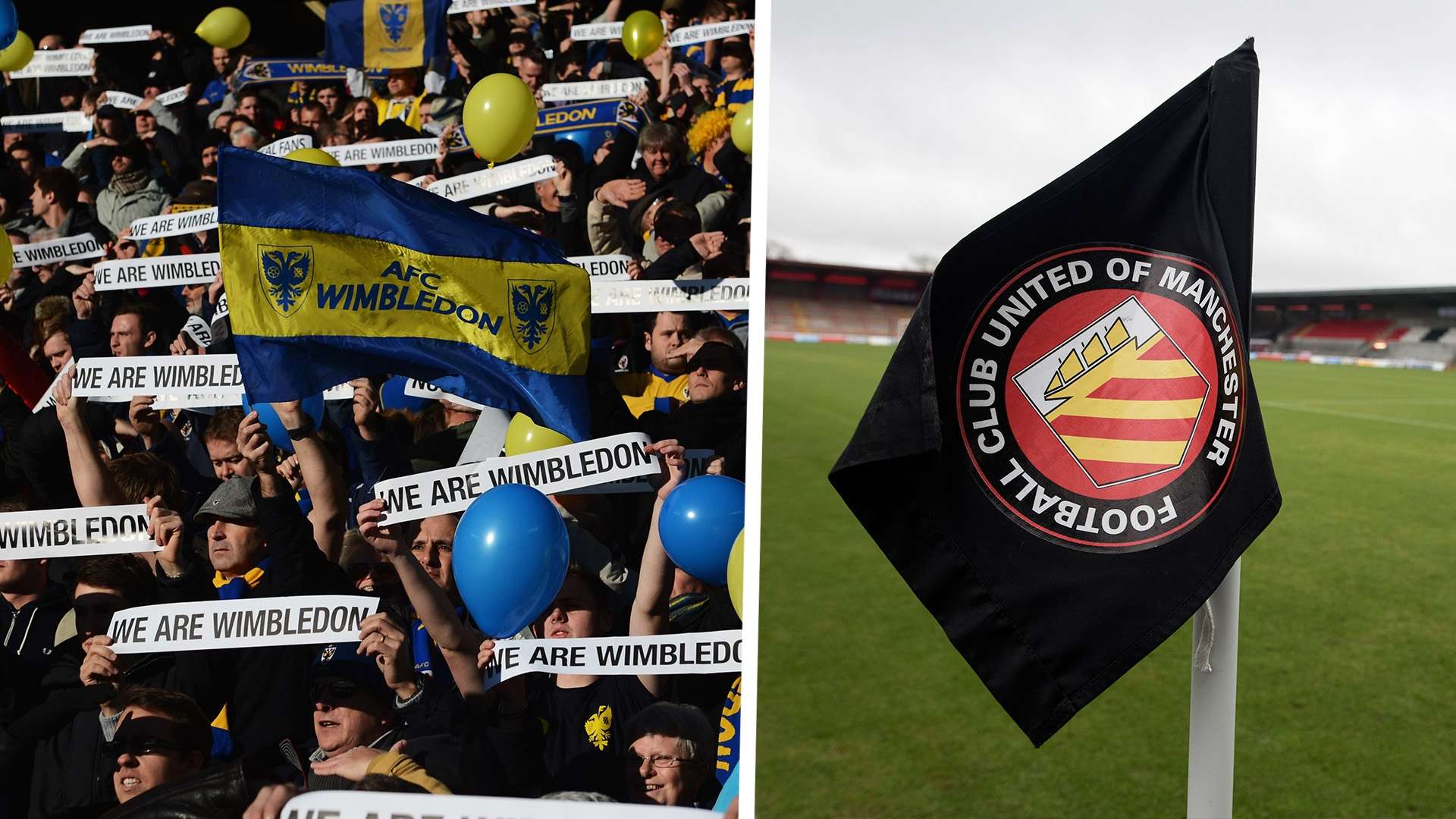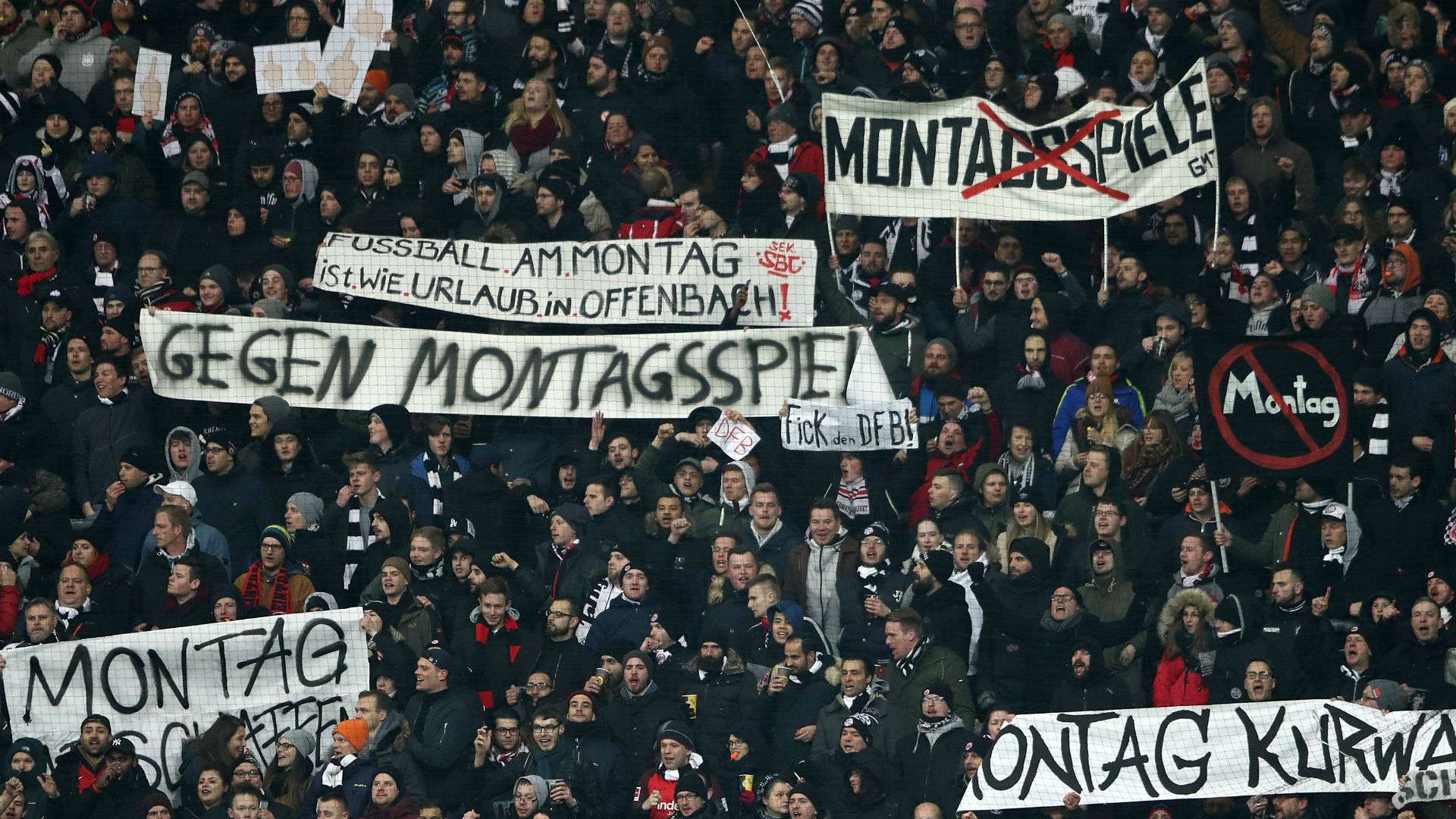Football at the highest level has become a highly profitable business, with the biggest clubs in the world benefitting from a plethora of lucrative partnerships.
Television money, in particular, has helped to boost the coffers, but it has also allowed networks to wield greater influence over things like fixtures and marketing.
While clubs have welcomed the injection of finance, it has come at a cost and supporters are ultimately the ones who suffer.
It is not surprising then, that the Against Modern Football movement was born. But what is it?
What is 'Against Modern Football'?
Against Modern Football (sometimes stylised 'AMF') is a subculture of football fans who are opposed to the direction in which the sport has gone and yearn for change.
With roots in continental Europe, it is a broad grassroots movement against the trend of commodification in football which increasingly treats supporters as consumers and the game as little more than a product.
The movement is not against progress per se, but against the type of 'progress', particularly that which prioritises the profit of big business over the health of a club and the interests of supporters.
While there is no single official Against Modern Football organisation as such, there are a number of core values shared by those within the subculture - though a strict philosophy has not been articulated.
 Getty Images
Getty Images
One value espoused by those who fall into the Against Modern Football sect, for example, is the importance of supporter engagement, with some voices calling for more clubs to follow supporter-ownership models.
Another issue the AMF subculture is united on is the gradual increase of ticket prices, which has the effect of excluding individuals who are unable to afford the cost. By the same token, the price of merchandise, such as replica shirts, is another bone of contention, though lower down on the agenda.
Higher costs generally are just one aspect of the perceived gentrification of football that causes AMF devotees to bristle. Part of it is also believed to be down to the fact that, in England for example, there is a requirement for all-seater stadiums, with many fans campaigning for safe standing zones. Pyrotechnics - such as flares and smoke bombs - are also banned and, while there is a strong case for upholding that position on safety grounds, a strand of supporters subscribe to the 'No Pyro, No Party' motto.
Widespread reform to the game's current governance - on national, continental and global scales - is another desire of those who are Against Modern Football.
It is important to note that, like any subculture, a range of views exist with some adopting a more hardline approach, often to their detriment, while others are not as zealous and happy to compromise in times of change.
Who is 'Against Modern Football'?
 Getty/Goal composite
Getty/Goal composite
The spirit of Against Modern Football has been embodied by a number of different supporters' groups over the years.
In 2005, for example, a group of Manchester United fans came together and established FC United of Manchester in response to the leveraged buyout of the Old Trafford club by the Glazer family.
The takeover of United by the Glazers was "the catalyst and final straw" for the fans, who were frustrated by off-field events affecting the club.
"FC United seeks to change the way that football is owned and run, putting supporters at the heart of everything," an early FC United of Manchester statement read. "It aims to show, by example, how this can work in practice by creating a sustainable, successful, fan-owned, democratic football club that creates real and lasting benefits to its members and local communities."
 Getty
Getty
Before that, the case of Wimbledon in 2002 was England's classic example of supporters clashing with club owners.
The decision by the Wimbledon owners to move from their south London home, where they had been since the club's foundation in 1889, to Milton Keynes, a new town located approximately 56 miles (90km) away, caused ructions and prompted a major split. The majority of Wimbledon's supporters were opposed to the move and subsequently established a new club, AFC Wimbledon.
The preservation of the club's "glorious past" was the main driving force in the push to establish a separate, new club.
The history section of the club's official website declares: "Determined not to let a proud 104-year history die, Dons supporters organised themselves and within just six weeks AFC Wimbledon - a club the [FA] commission had declared would be 'not in the wider interests of football' - was born."
 Getty
Getty
In Germany, the culture of putting supporters first has existed for quite some time and the '50+1 rule' - introduced in 1998 - helps to ensure that the will of the club's fans takes precedence over that of private investors.
However, supporters of some of the Bundesliga's biggest clubs have recently been clashing with the German governing bodies, the DFB and the DFL, over a variety of issues, such as collective punishment of clubs for stadium disturbances, the continued teething problems with VAR and the opposition to Monday night football.
Protests have seen supporters litter the pitch with tennis balls, engage in silent protests (refusing to contribute to the atmosphere by singing or cheering) and display strongly worded banners.
"As long as they (DFL, DFB and clubs) have a few more Euros in their pockets, they couldn’t care less how many days’ holiday we need to take to attend an away game," a statement from Frankfurt fans in opposition to Monday night football read. "Marketing is their highest priority."
Another notable example of the Against Modern Football culture in practice is the magazine STAND, which was established in 2012. The producers of the publication stress that they are "not the voice of the Against Modern Football movement", but they do examine many of the issues pertaining to it.
